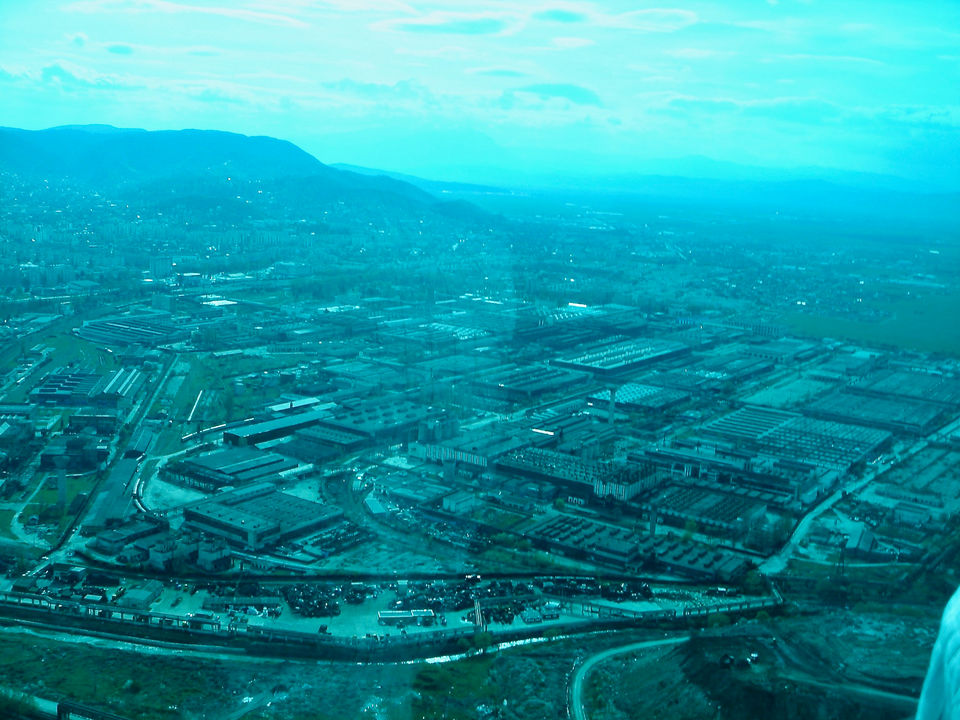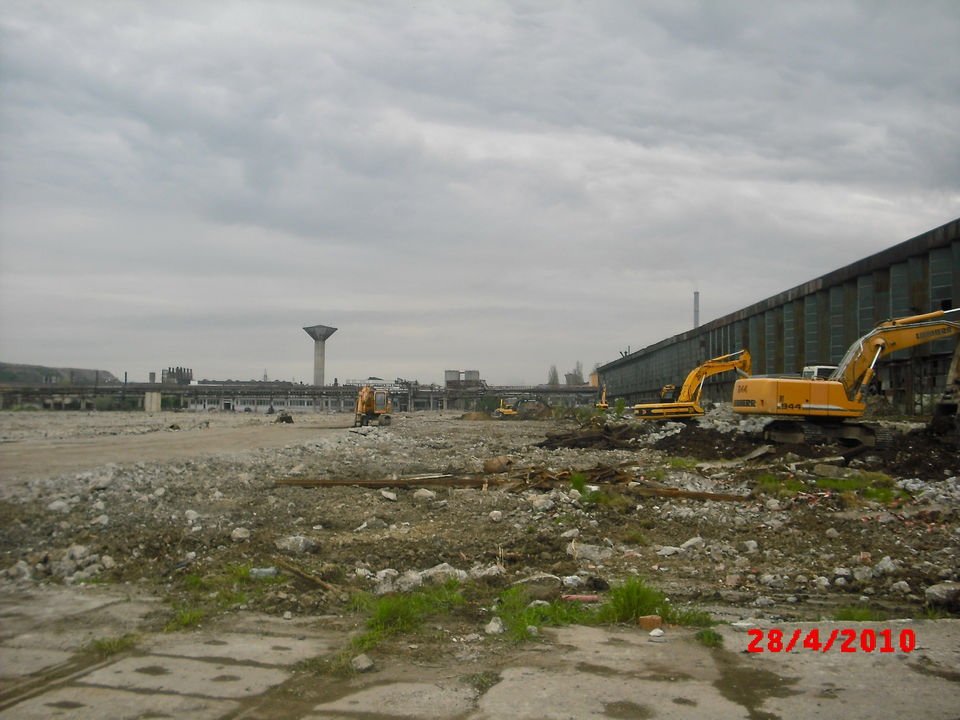
Coresi Brașov (Flavus)
Urban regeneration of the Tractorul Braşov site
Flavus Limited was a company formed to acquire the entire asset base (plant, buildings, land, industrial equipment, brand and intellectual property) of Uzina Tractorul Braşov (UTB, also known as Tractorul), one of Romania’s largest and most important factories in communist times. Located in Braşov, one of Romania’s biggest and most dynamic cities, Tractorul once employed 20,000 workers and produced 100,000 tractors/year that were sold across the globe. It was the pride of communist Romania.
In 2007, after years of heavy losses due to an inefficient business model, the Romanian government who owned Tractorul finally decided to put it into liquidation and sell the company’s assets in a public auction. Flavus, managed by Centerra, won the public auction and acquired the assets for €70m. This was major news in Romania as this public auction was one of the largest privatisations in the country and Tractorul was a symbol of the communist times.
The main attraction for Centerra was the location of the industrial site, in close proximity of the city centre but disconnected from it, with difficult road access. The massive 120 ha (300 acre) industrial estate was filled with giant, dilapidated industrial halls, numerous buildings and industrial machinery and installations. It took a lot of imagination to see what this sprawling, deserted site could become – see pictures below. Centerra's vision was to convert this site into a new, clean, modern and diversified urban centre, with retail, office, residential, education and recreation spaces.
Centerra turned this vision into reality. Giving the site a new beginning, Centerra renamed the estate Coresi Braşov, commemorating the name of the first editor of books in Romanian language in the 16th century in Braşov.
To implement this vision, Centerra had to start by clearing up uncertainties about the assets. Mandated tractor production, supposedly imposed by the state upon the sale, haunted Tractorul's auction despite the financial and business model failure of the old communist factory. Centerra tackled this head-on, clarifying through legal battles won at the European Commission and through legal action at ICSID (International Centre for Settlement of Investment Disputes) in Washington and through public comms that restarting tractor production was off the table. This resolve unlocked massive value by decisively clarifying that the Tractorul site was developable without constraints.
To develop Coresi Braşov, one of the largest urban regeneration projects in Europe, Centerra used international architects, engineers and master planners, drawing inspiration and advice from other large urban regeneration project developers at Canary Wharf in London, Hammarby Sjöstad in Stockholm and Manufaktura Łódź in Poland. The master plan Centerra developed for Coresi was rooted in the needs and prospects of the city, a young city with thousands of students and a well-educated workforce. This attracted customers to the site who saw its potential. Centerra demolished many of the industrial buildings, brought the land to an acceptable environmental standard, prepared it and zoned it for urban development. It also built the road and utilities infrastructure necessary for a dense urban centre, and which enabled its fast subsequent development. Centerra recycled the demolition materials, extracting steel, copper and other metals from the rubble and crushing concrete into aggregates used for road surfacing. It also recycled or sold the massive amount of industrial machinery that had been used to make hundreds of thousands of tractors.
By 2011, Centerra completed this transformation from a deserted, formerly industrial site to a clean, developable land with utilities put in place and dimensioned for a new urban centre. It refurbished and brought buildings to a high standard, enabling them to house a call centre (CGS), a bank's back office (Raiffeisen), software companies (IBM, Waters), technology companies (Freudenberg) and a high-tech clinic (Fresenius), thus creating Coresi Business Park with 1500 employees. This brought traffic to the site and generated substantial revenues.
Centerra also attracted international retail customers and developed Coresi Shopping Centre, which was going to become the lungs of the site and attract more traffic. By delivering a site that had proper zoning for a new urban centre, newly built roads and utilities infrastructure, a fully occupied and functioning anchor office park and a large retail development under way, Centerra was able to create significant value in the estate, despite the financial crisis that hit Romania badly.
Having completed this work, in 2012 Centerra negotiated the sale of Coresi Braşov to Immochan (now Ceetrus), property division of Auchan Group, and owned by the Mulliez family of France. Since then, Ceetrus and Nhood, its property development arm, have invested over €250m into Coresi Braşov, continuing its development faithfully according to Centerra's blueprint - see before and after videos.
Today, Coresi Braşov is part of and deeply connected to the Braşov city centre, occupied by a large and flourishing shopping mall, high rise residential buildings surrounded by green spaces, and with Coresi Business Park being one of the cornerstones of the entire site: see https://coresibrasov.ro/cartier-coresi/ and residential developer sites https://korter.ro/coresi-avantgarden-brasov and https://coresi-avantgarden.ro/proiectul-coresi-avantgarden/.
Centerra's vision was fully realised, with thousands of people today living, working, shopping and enjoying leisure activities on the former Tractorul estate.

























